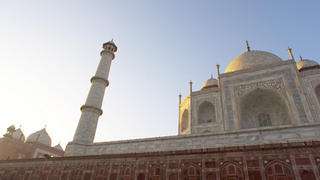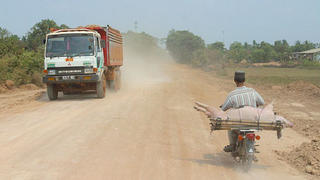There are two reasons why democracy has failed to deliver it's ideals in the west - the lack of representation for those who voted, and the lack of informed choice in the voting process. The nett result is an increase in poverty for the poor, exceeding wealth and power for the rich, and the frittering away of state owned infrastructure and community values.
Naomi Klein paints a vivid picture of what it means to be living in a 'corporate democracy'. Very large financial interests can undermine not only the validity of a democratic system, but eventually infects every layer from the top down. Deals made behind closed doors without accountability or scrutiny are far more likely to benefit someone's silk purse instead of the individuals of a nation.
More subtle yet far more pervasive is the cloak of party politics. Democratic systems which are built around opposing parties fail to achieve the most basic requirement of democracy - representation of the constituency. The Australian 'two party prefered' voting system pits one team against the other, minimising the scope for independant representatives to participate in government. It gets worse. Even those laughably named 'honourable members' who were voted into a parlaimentary seat on the party ticket are clearly more concerned to follow the party line than actually *represent* their voters.
Evidence of this failing can be found in those instances when the prime minister allows for members to exercise a 'conscience vote'. In this rare event we learn that the person your electoral seat voted for is allowed to make up his own mind (as your representative) instead of following the decree of his party. An exception to the rule. So the rule is to vote as your party does. What effect has this on debate within the parlaiment? Instead of each member being charged with duty to protect their constituents views the debate itself is reduced to political point scoring as the main players strut about in proposterous displays of self congratulatory flagellation. The focus becomes so skewed towards this game of boyish rhetoric that even the founding rules of parlaimentary engagement are constantly bended and broken - the absence of respect and dignity in the process is appauling and sad.
Democracy is not simply about voting however. In fact the vote is the least effective manner in which to engage in the democratic process. The rights to openly voice opinion, discuss issues and organise protest are fundamental in the process of executing that vote with care. This is not merely a matter of 'free speech'. Our world is dominated by media, as is the democratic process. Any bias or constraints upon an effective media will be to the detrement of the nation.
Effective media is rare. It requires specialised skill and great passion for truth on the part of the journalist. The viewing habits of western households however rewards shoddy entertainment more than considered editorial. The platform of the 'current affairs' format has shifted away from detailed investigation and moved into sensational hype and fear or "revealing" interviews with the stars. There is very little here to aid the process of informing voters of relevant facts.
Trashy television (or tacky tabloids) is regrettably not the worst of it. Instead we come full circle to the issue of excessive corporate power. In a world of syndicated content and cross media ownership there is very little opportunity for the insignificant viewer to lay bare the cogs behind the scenes. Having given over permission to the media to report sensation above sensibility we now find ourselves unbothered by journalistic integrity - we find ourselves accepting of filtered and manicured news sources which fail almost every basic requirement for a democracy. We know and accept that the interests of invested corporates will not be exposed to us or the news we see.
Complicit is the government of course. One hand washes the other. Instead of protecting us from the dangers of monocultured representations of the news, our governments recognise the potential for favourable coverage themselves when they lean in favour of relaxing ownership laws and cross-media constraints. It need not be conspiracy - pragmatism will suffice to avoid any undue pressure on the leaders of free enterprise.
In this realm their is no accountability. Our elected representatives in parlaiment have a duty to their party, first and foremost. They wont rock the boat. Let's face it, if they were the kind of people to throw a cog in the wheel then they would never have made it through the party filters. As a child I was told that if you cant say something nice about someone, dont say anything at all. The same applies to voting. If it doesnt work then dont do it. A visit to the polling booths will not change the current status quo.
In this world of party politics the fact is that you are not invited. So go do something else and start exercising the real power of democracy - informed choice, freedom of speech, and organised protest.

